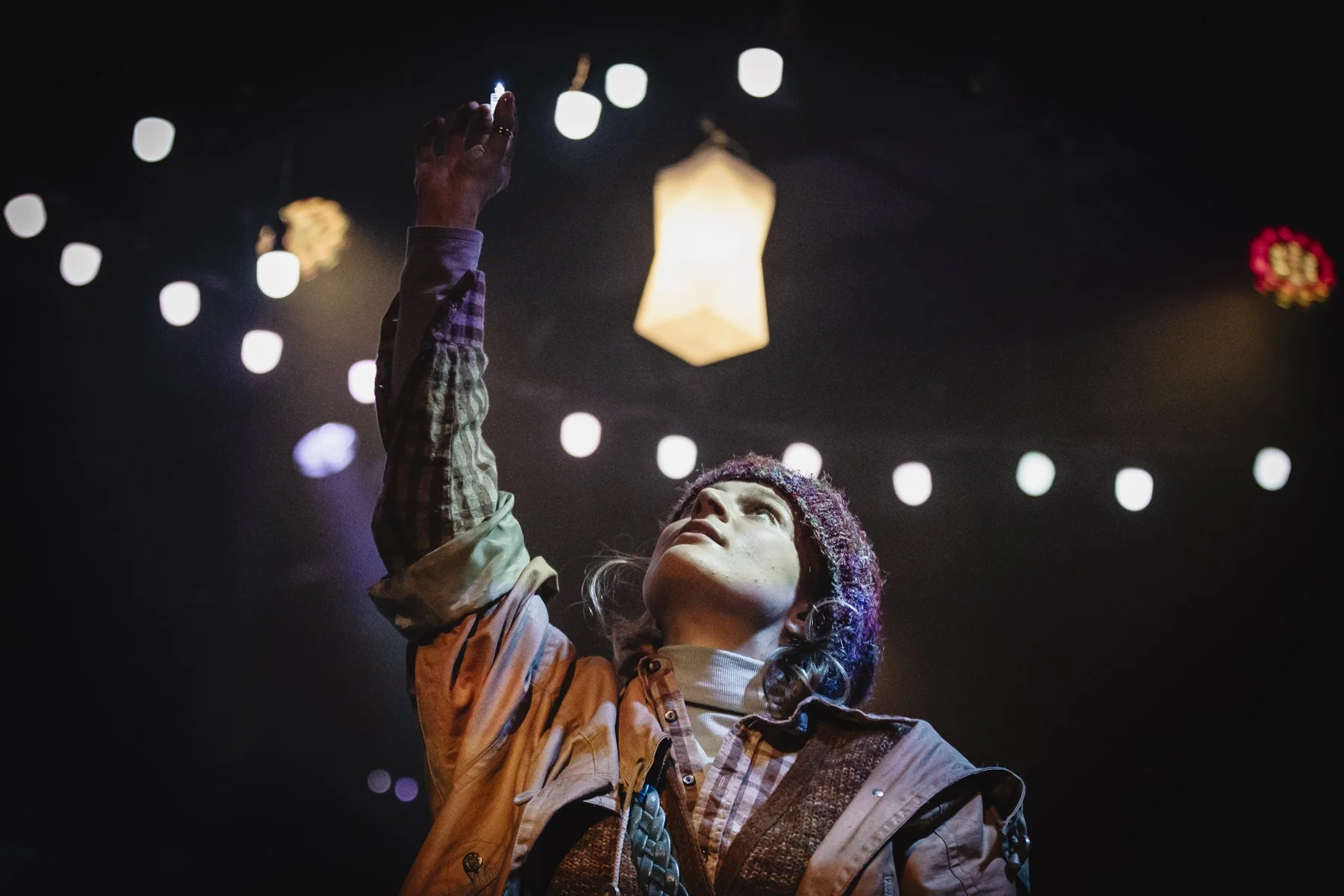The Government Cyber Campaign? We Won't Forget It
The Government may have scrapped their cyber campaign – but the message was loud and clear, and we won’t forget it.
Undoubtedly, we all revelled in the audacity of the Government’s campaign urging Fatima – and all other creative libbers for that matter – to rethink a lifetime of diligent practice and devotion to passion in order to dedicate ourselves instead, to cyber.
What is cyber, you might ask? A question at which our gracious government might have scoffed; ‘of course these creative types wouldn’t recognize proper work if it smacked them on their forehead.’ Who can be freshly delivered from the travesty of frolicking around in a tutu?
Whichever burgeoning industry cyber is meant to represent (computers, I gathered) the government’s disparaging attitude toward the arts has never been so crassly and boldly asserted. Never mind the fact that each year our creative industries contribute £10 billion to our economy - a sum exceeding that of automobiles, aerospace, the life sciences and the oil and gas industries. You would expect such an economic backbone to be valued and respected – least of all undermined.
‘Fatima’s next job could be in Cyber (she just doesn’t know it yet)’ wholly demeans and diminishes the economic worth and societal significance of the arts. The bracketed addendum verges on menacing. It doesn’t seem like Fatima has much of a choice – it’s phrased as an inevitability, ripe with the implication that Fatima doesn’t know what’s good for her.
Does the government’s use of a woman of colour as the face of this campaign denote a lack of consideration of the extra structural barriers facing many members of the - as our government would heavy handily label them - BAME community?
Is it decent to dissociate the image of a ballerina with a woman who looks like Fatima? How can one justify telling aspiring dancers and performers that someone who looks like Fatima, should do something else? It’s unforgivable – and it’s no surprise.
It’s abundantly clear that it’s not up to Fatima to retrain, but up to the government to re-address their relationship with the creative sector. It goes without saying that such a contemptuous attitude won’t do the government any favours – but the realist in me recognizes that these missteps by the government are not uncommon and are rarely punished by the great British public; optimism can be misplaced.
Boris and his cronies quickly came to recognise the damage reaped by such a campaign – swiftly pulling it. But not before the damage was done. These insulting advertisements are indicative of an odious, condescending and philistine attitude – and aptly demonstrate how this government values the arts.
The subtext of the campaign is that creative jobs are not real jobs, branding them as luxurious, pointless hobbies. Rishi Sunank’s winter economy plan launched with a focus on ‘viable’ jobs which was met with anger from those in the arts, furious at the suggestion that their work could be – and should be – given up for more tangible trades.
Amidst the backlash, Rishi Sunak insisted that he was speaking generally about the need for some workers to ‘adapt’, suggesting that there would be ‘fresh and new opportunities’ for people out of work. For Sunak, it was clearly more advantageous to ‘retrain’ creatives as code in the cyber machine, than to adequately fund and support a struggling arts sector.
There was some haphazardly casual wording on the tech skills website QA, under a Government logo: “If your career plan’s been altered this year, you’re not alone. 2020 has shaken up jobs – but most successful careers have a turning point.’
You lost your livelihood because of the pandemic? Hey ho, time to get an actual job.
The twisted truth – and the thing that probably made most people irate – is that most creatives already have ‘proper’ jobs; dreams subsidised by an established payroll. Creative passions are so often supported by office work and hospitality work, any kind of work for that matter. It’s worth mentioning that this is the very work our government previously deemed ‘low-skilled’ – a term for which a reassessment is well overdue.
And all of this is because our government invests little in the sector that empties billions into its pocket, develops the lives of its inhabitants, and enhances its global reputation. We live in a nation which actively exploits our passions as opposed to encouraging them as viable professions; dreams deferred, and then denied.
The ‘rethink, reboot, reskill’ campaign promised to equip people ‘with the essential skills needed to set you on a rewarding career path.’ How about instead of telling Fatima to stay in her lane, we incentivise her every aspiration and recognise her ability to do whatever-she-wants. No addendum. After all, we can’t all pursue a political career subsidised by inheritance.
It is impossible to comprehend the economic impact of the coronavirus pandemic. The IMF predicts the loss to world output to be roughly £2.8tn. And Britain is one of the countries to have fared the worst, with a fall in GDP of about 10%. While I don’t want to sneer at the government's £1.57 billion rescue package – which is certainly a step in the right direction – the funding primarily props up firms, leaving thousands of freelancers to sling their hooks.
Just as it’s right to support those who have suffered at the hands of the pandemic – it is just to tax the unearned profits of those who have benefited from circumstances beyond anyone’s control (we all know who they are).
At a time where people across the globe are dislocated, separated and estranged from their loved ones, art has provided us reassurance, comfort and escape. The pandemic has highlighted how integral the arts are to our being; allowing us to explore beyond the realm of our quotidian. Films, music, literature, television, podcasts – they’ve allowed us to persevere and they will continue to do so. They’ve allowed us to reminisce, taking us back to simpler and softer times. And they’ve allowed us to look towards a brighter day, a day of reunion and levity.
The hypocrisies embedded in the government campaign were blatant – an anti-arts campaign quite literally created by creatives, really? Such disrespect and ignorance towards those who weave the very fabric of our dreams is abhorrent. I can’t pretend to know what fantasy Boris sings to himself to get to sleep at night, but I sure hope he has the strength to recognise it for what it is, a vision that keeps him going.
Rebook. Rethink. Reskill – don’t you dare deny us ours.
Help us keep the City Girl Network running by supporting us via Patreon for the price of a cheap cup of coffee- just £2 a month. For £3 a month you can also get yourself a Patreon exclusive 10% off any of our ticketed events! You can also support us by following us on Instagram, and by joining our City Girl Network (city-wide!) Facebook group.
Written by Polly Wyatt













